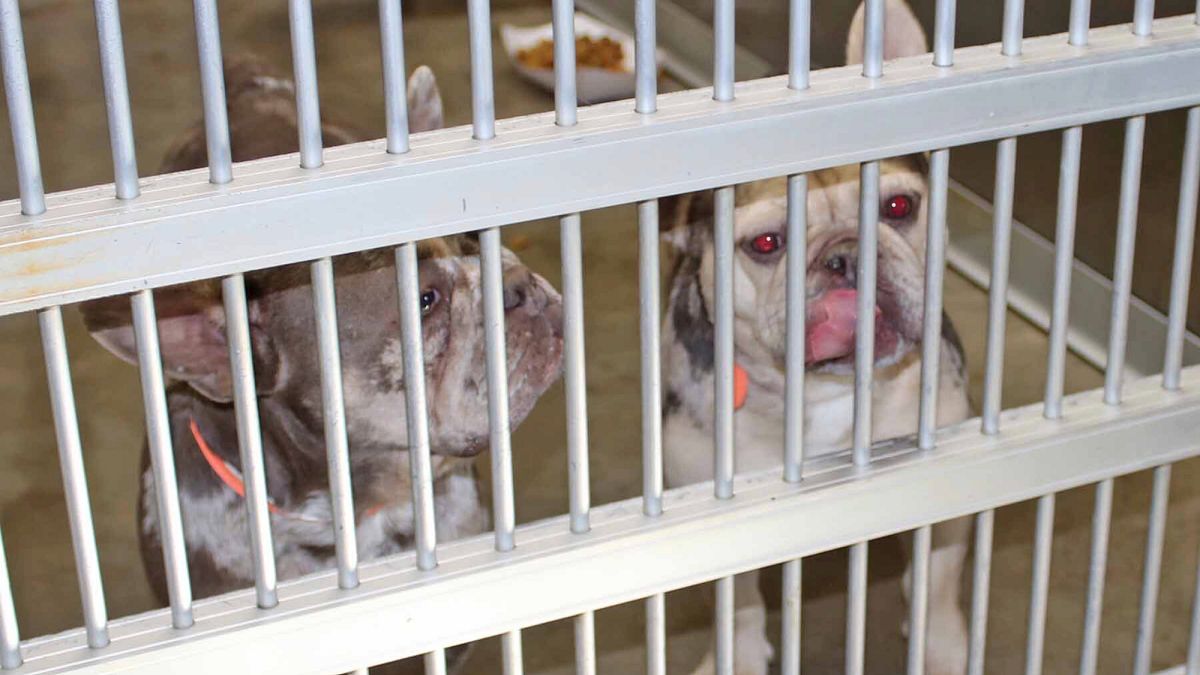An EU law aiming to establish minimum common standards for breeding and keeping cats and dogs in the bloc leaves loopholes in online trading and risks continued use of so-called “puppy mills” in which babies are chained up, MEPs and NGOs have warned.
In December 2023 the European Commission proposed the law to regulate a market it estimates generates €1.3 billion each year, in order to improve traceability of cats and dogs across Europe, as well as banning controversial practices such as ear cropping.
EU ministers adopted their position on the proposal last year, and the European Parliament is now expected to vote on the matter on Thursday in Strasbourg, paving the way for final negotiations between the institutions before agreement can be reached on a final text.
Under the new rules all pets would need to be identified using electronic microchip transponders before entering the market to reduce fraud and enable better enforcement of animal welfare standards.
The online trade loophole
The legislation does not require online platforms to verify pet listings before they are published, however, despite the fact that most illegal pet trade happens online.
Only nine EU countries currently require sellers to meet basic standards to sell pets online. This gap allows illegal sellers to post listings anonymously, bypass licensing, and avoid identification checks.
A set of amendments has been filed by MEPs to address this specific issue. Advocacy groups would like lawmakers to implement a simple but effective verification system similar to a credit card check to ensure online sellers are traceable and accountable.
A related problem is the common practice of sellers posing as “private individuals” to sidestep regulations. This avoids mandatory health checks, registration, and taxes, enabling a large underground market to flourish.
Exemptions raise ‘puppy mills’ risk
Another contentious issue is a proposed exemption for breeders with three litters or fewer. Animal welfare groups warn this could exclude roughly 80% of all breeders from oversight, many of whom operate without proper regulation.
Just one unregulated breeder can produce up to 100 puppies or kittens over an animal’s lifetime, according to Eurogroup for Animals. France alone has an estimated 20,000 to 30,000 amateur breeders, many producing at least one litter per year.
Without regulation, these animals risk being raised in unsanitary or unethical conditions, including so-called “puppy mills”, where animals are sometimes kept in chains, according to the NGO.
Some MEPs are calling for these exemptions to be removed. Animal welfare organisation Four Paws urged lawmakers to ensure all breeders, regardless of size, comply with identification, registration, and basic welfare rules.
“No exceptions, and full traceability in online sales. In short, this regulation must live up to its own objectives,” said Georgia Diamantopoulou from Four Paws.
Shelters under pressure
A final blind spot in the legislation is its limited scope: microchipping and registration only apply to animals placed on the market.
This excludes stray and free-roaming animals, leaving shelters to deal with the fallout.
Animal shelters across Europe are facing overcrowding situations and are under-resourced, meaning they will receive even greater strain due to unregistered pets and the continued consequences of unregulated breeding and trade.
“To effectively combat the illegal pet trade and protect animal welfare, EU rules must apply to all cat and dog breeders, including small and amateur ones,” said Iza Arriet from Eurogroup for Animals, who added that illegal trade often comes from breeders who cut corners and ignore welfare standards.
Read the full article here


